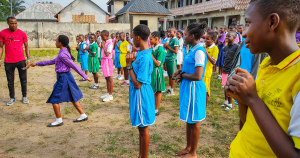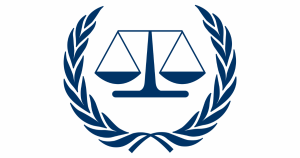The first ever confirmation of charges hearing is being held today at the International Criminal Court, focusing on the charges against Thomas Lubanga for the conscription, enlistment or use of child soldiers in the DRC. No Peace Without Justice welcomes this historic event as a step toward ending impunity in the Democratic Republic of Congo (DRC) and as a signal of growing international determination to end the use of child soldiers.
The Office of the Prosecutor officially opened its investigation in the DRC in June 2004, acting on the referral from President Joseph Kabila. The ongoing violence in the DRC dates back to a conflict beginning in 1996, however, the ICC investigation focuses only on crimes that occurred after the Rome Statute entered into force in July 2002.
The near global ratification of the Additional Protocols of the Geneva Conventions and the Convention of the Rights of the Child has established customary law prohibiting the conscription, enlistment or use of child soldiers under the age of fifteen. This applies to both State and non-State entities, regardless of whether they have ratified these instruments and, since the early 1990s, there has been a push to raise the minimum age to eighteen. Despite these positive steps, child soldiers are currently used in more than thirty countries.
The prohibition of the conscription, enlistment or use of child soldiers under age fifteen in the Rome Statute signals the gravity of this crime; the issue is given greater weight by these hearings. However, the crime of recruitment should not be viewed in isolation: the conscription, enlistment or use of child soldiers is inextricably linked with overall strategies of warfare that violate international humanitarian law. The charge of recruitment should be included in each and every indictment where there is evidence it has been committed, to underscore the pervasive recruitment or use of child soldiers, but it should not be the only charge. No Peace Without Justice hopes and believes that the ICC will follow these charges with further indictments for the serious crimes committed against the people of the DRC.
The focus of the indictment against Mr Lubanga on the conscription, enlistment or use of child soldiers makes it likely that some children will testify at trial. No Peace Without Justice strongly urges that all appropriate measures are employed for the protection of their safety, physical and psychological well-being, dignity and privacy, as required by the Rome Statute. All children affected by this conflict, and particularly children who appear before the ICC, should also be provided with services for their recovery and reintegration.
No Peace Without Justice strongly supports the policy of the Office of the Prosecutor to focus on “those who bear the greatest responsibility” for the alleged commission of crimes. No Peace Without Justice believes that the OTP should focus on those who bear the greatest responsibility for the crime base as a whole, as opposed to the most horrendous or signature crimes, for three reasons. First, it locates responsibility with the people who actually make the decisions. Second, it is the best chance for deterrence, as the planning of these crimes occurs at the highest level of decision-making, where the likelihood of criminal prosecution can be a deterrent factor. Third, it is the best chance of reaching the greatest number of victims, as these people are responsible for multiple crimes, not just for individual atrocities.
To accomplish this, No Peace Without Justice believes that the OTP should first, identify the crime base, i.e. the totality of crimes committed in any given situation. Only then can the OTP identify those who bear the greatest responsibility for the totality of the crimes, irrespective of who they are or the fighting faction to which they may belong, before selecting the most representative crimes to prosecute. This will increase the effectiveness of the investigations and prosecutions and will provide justice for more victims than would otherwise be possible; people who lived under policies to violate the laws of war and who can recognise their stories in the indictments.
For the ICC to be able to operate in the situation countries and to maximise the impact of its work and decisions, it must implement a focused, sustained and widespread outreach program, designed to facilitate two-way interaction with local populations, to promote understanding and manage expectations. No Peace Without Justice recognises the efforts of the ICC to undertake outreach in the situation countries and in particular in the DRC and urges the ICC to intensify those efforts, particularly as important milestones in the process of Mr Lubanga’s case continue to be achieved. Nevertheless, misunderstandings and misconceptions about the ICC remain rampant across the DRC and the Court’s outreach efforts should be intensified, particularly to reach children, who are the primary victims of the crime of recruitment, and the fighting forces, who need to be informed that it is, under all circumstances, a crime to conscript, enlist or use child soldiers.
Outreach is not a luxury: it is an operational necessity. It can help the Court do its job investigating crimes and connecting with victims. The more outreach that is done, the more people interact with the ICC, the less unusual it is and the more the ICC can offer protection to those with whom it interacts. One leaflet in a village that has none is cause for comment; one leaflet in a village that has been inundated with information is simply par for the course.



